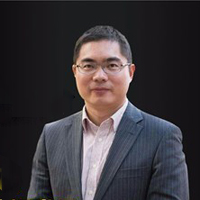【China Daily】Children from poor family could succeed through efforts
September 03 , 2017These years, the phrase “impoverished families can hardly nurture rich sons” has been frequently used in public opinions. In reports, for example, reporting the proportion of rural young people in the top universities is decreasing and the recruitment market is increasingly favoring urban youth seems to be common. However, while China’s population quality and education level has greatly improved, the gaps of material conditions and life experience are still large obstacles for “impoverished youth” to get ahead. Whether the situation is yet to be verified, the social anxiety of “Impoverished families can hardly nurture rich sons” is a reality.
Who are the “rich sons” in today’s societies? The word “rich” does not mean they have to get rich or to acquire a high social status. It represents the possibility of life progress and the opportunity to realize the value of life. The second generation of the riches and the officers are certainly accord with the traditional definition of “rich sons”. However, if they do not have their own professional skills, neither are able to start a business with their own talents; so-called “rich” only stays superficially.
On the contrary, the impoverished youth who can start from scratch with their own efforts to create values to themselves and the society as a whole, the title of “rich sons” is inherently telling. As a representative of the outstanding graduates of Harvard University, one of China’s impoverished students, Jiang He, once mentioned his successful experience.
“Every time enter into a larger place and stand on a bigger platform, I always find that there are a lot of things that I have not understood,” he said.
“My strong curiosity drives me to learn them to constantly make up my weaknesses.”
At the same time, in an era that the internet culture is prosperous, the ways of the impoverished youth to counterattack become more pluralistic. A short time ago, Shenwei Shi, a young man from Hubei province, had a screen name “Banzhuanxiaowei”. He attracted more than 1 million fans on the short video sharing platform, with a series of homemade high difficulty fitness video. This impoverished young man has moved countless netizens with his experience of growing from a left-behind child and a video-game addicted boy to a famous person with the continuous hard work in fitness to hone and change himself, which conveys positive energy to the society.
Today, many famous people on the internet, who have similar experience as “Banzhuanxiaowei”, have realized their own value and have transmitted positive energy to the social progress with the access of the internet. Some people exclaim Shenwei’s tenacity, modesty and simplicity are the luxuries of this era. He is a true “rich son” who truly belongs to today. It is undeniable the spread of the flat internet has opened a life-changing window for many impoverished young people and has created another possibility of life.
Modern social scientific research shows a person’s success is closely related to the social trust and social support that the person gains. Family background, education background and work platform do influence a person’s growth path. However, in an era with the pluralism in values and flat transmission channels, the term “rich son” had more abundant implications. In the meantime, “powerful circle of friends”, which is composed based on internet, also can provide strong social support to help impoverished youth be successful.
A popular speech pervading on the internet, “Impoverished family, rich sons”, contains a passage – “Most of us are not from rich families. We are all on our own. So, you have to believe what destiny means to tell you and when it has given you a lower starting point is to let you use your life to create a story of comebacks.”
It is not chicken soup for the soul, but proposes a critical question. In such an era with infinite possibilities, the topic of whether impoverished families can have “rich sons” is not a topic of “fate” but a story about “struggle”.

Gao Wei, a fellow at the Center for China and Globalization (CCG) and a researcher at the State Administration of Press, Publication, Radio, Film and Television of China.
Topical News See more






